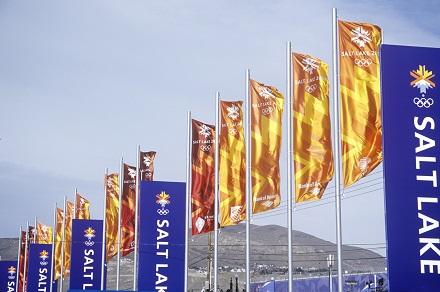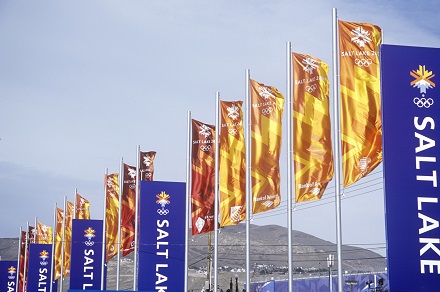

On Feb. 12, Utah Gov. Gary Herbert and Salt Lake City Mayor Erin Mendenhall introduced the new Salt Lake City-Utah Committee for the Games to, in Herbert’s words, “show that we continue to be ready, willing and able to play host to a future Olympic and Paralympic Winter Games.”
According to the Associated Press, the committee “will do a careful analysis in the coming months of the pros and cons between bidding for 2030 or 2034 and then inform the U.S. Olympic and Paralympic Committee of its decision. … The U.S. committee chose Salt Lake City two years ago over Denver and Reno, Nev., as the next American city to bid for a Winter Olympics, but hasn’t chosen which year it wants Utah to pursue.”
In January, officials in Sapporo, Japan, announced their intention to bid for the 2030 Games.
“The bottom line is, we’ll get what we can get,” Herbert told the Deseret News after the announcement. “I think we have to go after 2030, and if we don’t get that, then we’ll be really positioned, I think, very well for 2034.”
Los Angeles will host the 2028 Summer Games, and concerns exist within the Olympics community that 2030 would be too soon to host again.
“Back-to-back Games [are] hard to pull off,” Fraser Bullock, president of the U.S. Olympic and Paralympic Committee and a key organizing player in Salt Lake City’s 2002 Olympics, told the Associated Press. “From two perspectives: Will the International Olympic Committee accept it as opposed to rotating? And two, domestic sponsorship dollars. How many dollars are there to go around?”
Salt Lake City was the last U.S. city to host a Winter Olympics, in 2002. Those Games attracted 2,400 athletes and propelled the destination onto the world stage. The bid, however, was marred by the indictment of two officials on charges of conspiracy to commit bribery, fraud and racketeering related to a vote-buying scandal.
Eighteen years after the 2002 Games, fewer cities than ever are expressing the desire to host the Summer and Winter Olympics — citing the financial and social constraints associated with the effort. The AP reports that Utah officials estimate the state could host anther Winter Games for about $1.4 million, adding that “Salt Lake City is considered a strong candidate to be awarded another Olympics because Park City and other mountain towns near Salt Lake City have preserved and improved upon many of the venues, and continued hosting key international events.”
According to the Center for Public Policy & Administration at the University of Utah, seven years (1996-2003) of preparations for the 2002 Winter Olympics and Paralympics generated $4.8 billion in sales, $1.5 billion in earnings for Utah workers, $2.1 billion in spending directly related to the Olympics and $76 million in net revenue to state and local governments.

